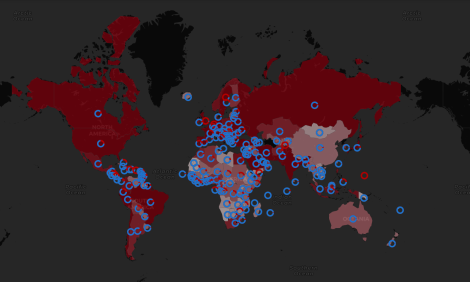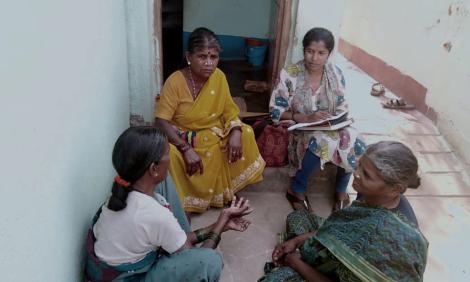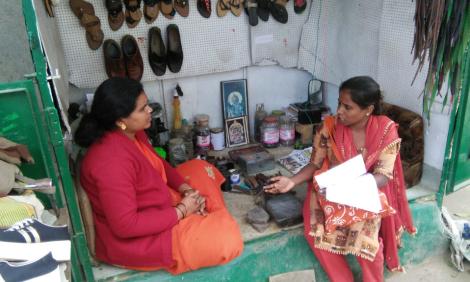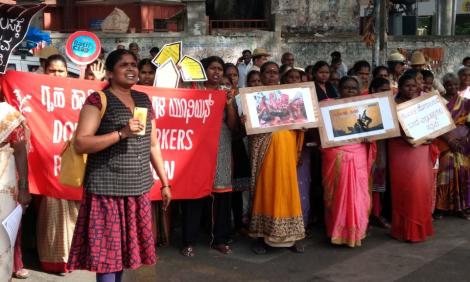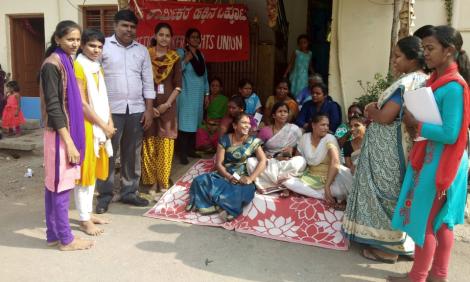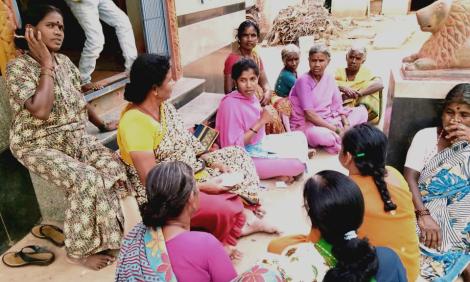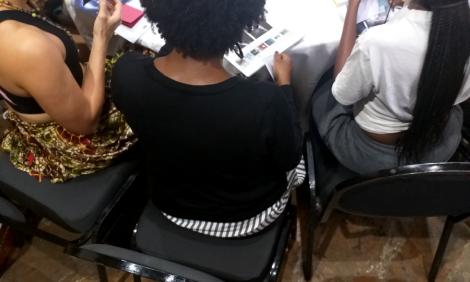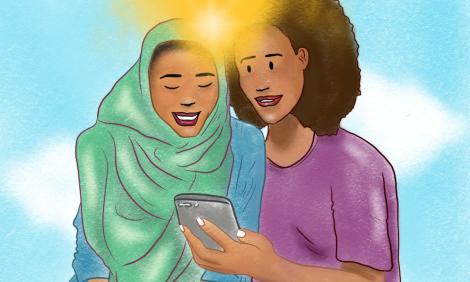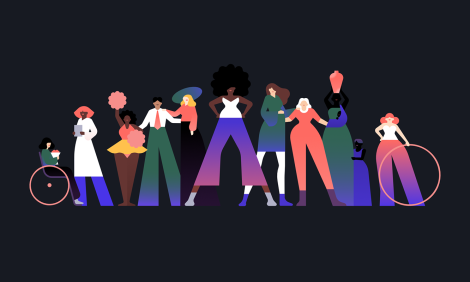In depth
Data, maps and colonialism in times of pandemic
By Lucía Trias
The practice of mapping began within a month since the first outbreaks of Covid-19 as a means of rapid visualisation, accompanied by the division between those who manage data and those who contribute their personal information, while suffering the consequences of it. Is there a more just approach to information-based aid where people have more autonomy over their data?
In depth
Domestic work in the platform economy: reflections on awareness of worker's rights
By Parijatha G.P.
As part of the Feminist Internet Research Network, we are including a series of short pieces on reflections by researchers on the ground. Here the author reflects on whether domestic workers are sufficiently aware of their rights and of unions that they could be part of, regardless of whether they use online platforms or find work using more traditional routes.
In depth
Domestic work in the platform economy: reflections on conducting interviews on sensitive issues
By Radha
As part of the Feminist Internet Research Network, we are including a series of short pieces on reflections by researchers on the ground, and in this piece a researcher talks about the experience of doing research with workers, unions and companies and of trying to determine the extent of sexual harassment or caste prejudice in the platform economy around domestic labour
In depth
Domestic work in the platform economy: reflections on difficulty to set up interviews
By Sumathi
As part of the Feminist Internet Research Network, we are including a series of short pieces on reflections by researchers on the ground, and in this piece, the researcher speaks of the difficulties of setting up interviews with domestic workers, often torn between home and work obligations.
In depth
Domestic work in the platform economy: reflections on research and social work
By Zeenathunnisa
As part of the Feminist Internet Research Network, we are including a series of short pieces on reflections by researchers on the ground, and in this piece, the writer explores how it is possible but also difficult for her to do social work and awareness building, and shift to doing research.
In depth
Digital mediation of reproductive and care work in India: research reflexivity and challenges
By Ambika Tandon
Women who do domestic work are able to now find employers through online platforms, but does this new avenue and promise of the digital economy ensure that their labour rights are upheld? In this short series, we read about four researchers who directly interviewed with workers as part of a project in the Feminist Internet Research Network. Here are the reflections of the researchers on ethics…
In depth
Making a Feminist Internet: Access and inclusion in feminist movements
By Maimuna Jeng
It is fundamental to ensure that when organising, we do not overlook women who do not have “feminist” on their bios but are resisting and defying in their homes, schools and workplaces. When we represent, we need to make sure that we do not forget the women who don’t have access to the same spaces.
In depth
Review: No Roses From My Mouth
By Wairimu Muriithi
No Roses From My Mouth is a collection of poems written in jail by feminist poet and academic Dr. Stella Nyanzi. Wairimũ Mũrĩithi looks at the feminist solidarity movement that is organising offline and online actions for Nyanzi's release, and reflects on the interconnected struggles that Nyanzi represents.
In depth
Dealing with ruptures: How we can build stronger feminist movements in Africa
By Gorata Chengeta
In order for our movements to be successful, not only do we have to find each other, but these connections have to be sustained with intention. Within our movements, we are faced with internal challenges because every movement is founded on relationships, and relationships are vulnerable to all kinds of challenges.
In depth
Good-mannered women never make any history, even online
By Francis Monyango
Through two stories from Kenyan women, this article shows how women get harassed online, especially when they express themselves in ways that do not conform to the patriarchal order in the society which they live in.

